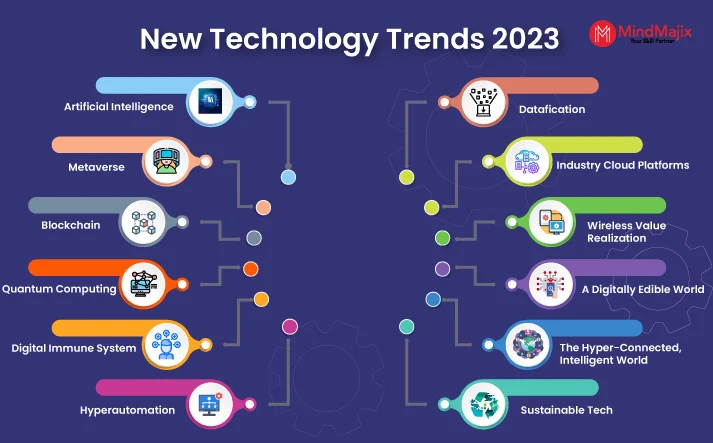As artificial intelligence (AI) continues to evolve, the ethical implications of its use become increasingly significant. This article explores various subtopics related to the ethics of AI, aiming to balance innovation with responsibility.
Understanding AI Bias
AI systems are often trained on large datasets that may contain biases, leading to unfair outcomes. Understanding AI bias is crucial for developers and users alike. Bias can manifest in various forms, including racial, gender, and socioeconomic biases, which can perpetuate discrimination in decision-making processes.
To mitigate AI bias, it is essential to implement diverse datasets and conduct regular audits of AI systems. By recognizing and addressing these biases, we can work towards creating more equitable AI solutions that serve all segments of society fairly.
Data Privacy and Security
Data privacy is a significant concern in the age of AI, as these systems often require vast amounts of personal data to function effectively. Ensuring that user data is collected, stored, and processed securely is paramount to maintaining trust in AI technologies.
Organizations must adhere to data protection regulations, such as GDPR, and implement robust security measures to safeguard user information. Transparency in data usage and providing users with control over their data can further enhance privacy and security in AI applications.
Accountability in AI Decision-Making
As AI systems become more autonomous, the question of accountability arises. Who is responsible when an AI system makes a mistake or causes harm? Establishing clear accountability frameworks is essential to ensure that developers, organizations, and users understand their responsibilities in the AI ecosystem.
Creating guidelines for ethical AI development and usage can help clarify accountability. This includes defining roles and responsibilities, as well as establishing protocols for addressing grievances related to AI decisions.
The Role of Transparency in AI
Transparency in AI refers to the clarity with which AI systems operate and make decisions. Users should be able to understand how AI systems arrive at their conclusions, which is vital for building trust and ensuring ethical use.
Implementing explainable AI (XAI) techniques can enhance transparency by providing insights into the decision-making processes of AI systems. This not only helps users comprehend AI outputs but also allows for better scrutiny and improvement of AI models.
Ethical AI in Healthcare
The application of AI in healthcare presents unique ethical challenges, particularly concerning patient privacy, consent, and the potential for biased outcomes. AI can enhance diagnostic accuracy and treatment personalization, but it must be implemented responsibly to avoid compromising patient rights.
Healthcare providers must prioritize ethical considerations when integrating AI technologies. This includes ensuring informed consent, maintaining data privacy, and actively working to eliminate biases in AI-driven healthcare solutions.
AI and Employment: The Future of Work
The rise of AI technologies has sparked debates about their impact on employment. While AI can enhance productivity and create new job opportunities, it also poses risks of job displacement in certain sectors. Balancing innovation with responsibility requires a proactive approach to workforce development.
Investing in reskilling and upskilling programs can help workers adapt to the changing job landscape. Policymakers and organizations must collaborate to create a future of work that leverages AI while ensuring that workers are supported through transitions.
Environmental Impact of AI
The environmental implications of AI technologies are often overlooked. The energy consumption associated with training and deploying AI models can contribute to carbon emissions and environmental degradation. Addressing the environmental impact of AI is essential for sustainable innovation.
Organizations can adopt energy-efficient practices and invest in green technologies to minimize their carbon footprint. By prioritizing sustainability in AI development, we can ensure that innovation does not come at the expense of the planet.
The Global Perspective on AI Ethics
AI ethics is a global concern that transcends borders. Different cultures and countries may have varying perspectives on ethical AI use, influenced by social norms, legal frameworks, and economic conditions. Understanding these diverse viewpoints is crucial for developing universally accepted ethical guidelines.
International collaboration and dialogue can help establish common ethical standards for AI. Engaging stakeholders from various sectors, including academia, industry, and civil society, can foster a more inclusive approach to AI ethics on a global scale.
| Aspect | Description |
|---|---|
| Definition of AI Ethics | AI ethics refers to the moral implications and responsibilities associated with the development and deployment of artificial intelligence technologies. |
| Importance of AI Ethics | As AI technologies advance, ethical considerations become crucial to ensure that innovations do not harm individuals or society. |
| Key Ethical Principles | Transparency, fairness, accountability, privacy, and security are fundamental principles that guide ethical AI development. |
| Innovation vs. Responsibility | While innovation drives progress, it is essential to balance it with responsible practices to mitigate risks and prevent misuse of AI. |
| Challenges in AI Ethics | Challenges include bias in algorithms, lack of accountability, data privacy concerns, and the potential for job displacement. |
| Regulatory Frameworks | Governments and organizations are working to establish regulations and guidelines to ensure ethical AI practices. |
| Role of Stakeholders | Developers, policymakers, and users all play a role in promoting ethical AI by advocating for responsible practices and holding each other accountable. |
| Future of AI Ethics | The future of AI ethics will likely involve ongoing dialogue, adaptation of regulations, and a focus on inclusive practices to address emerging challenges. |




